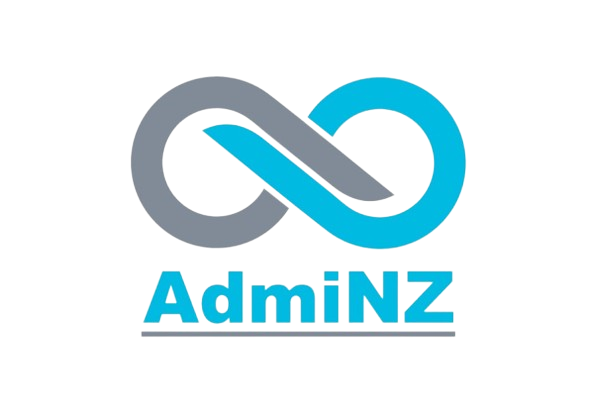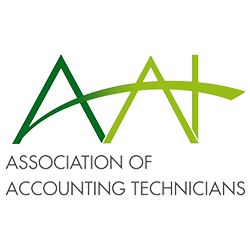Microcredentials: An Introduction

Microcredentials have been recently recognised by the New Zealand Qualifications Framework as qualifications that are economically and socially relevant. But what exactly are microcredentials? It is a certain type of certification, which develops skill sets a particular industry recognises.
What differentiates them from the more typical degrees offered by higher education providers is that microcredentials are issued in small increments. Because of this, it is referred to as ‘informal learning’, since these short courses are flexible and smaller than your normal university degree. It’s affordable, targeted and relevant to its specific industry, so you don’t have to worry about doing a microcredentials course and leaving with something useless.
There are a few requirements that NZ microcredentials have to meet such as being 5-40 credits in size, not duplicating any sort of teaching that has already been approved by another tertiary education provider and must be reviewed every year to ensure their relevance.
What are digital badges?
Digital badges, also known as web badges, are proof of the professional skills that you learn from microcredentials courses. They can be shared on several social media platforms and can be put down on your resume.
It validates the skills and knowledge you learn from the course you’ve undertaken, along with connecting you to potential employers.
What are the types of skills that you learn from microcredential courses?
There are two broad types of specific skills that you can learn from these online courses: ‘hard skills’ and ‘soft skills’. Both are equally important for upskilling since you will need to have specific knowledge for your position and the more generalised skills are crucial for teamwork and to keep you working efficiently and effectively.
Hard skills
Professional skills that are specific to the industry and are required for the role such as data analytics, web development and more.
Soft skills
General skills that you can use across many different industries such as problem-solving, critical thinking, teamwork and more.
What does the microcredentialing process entail?
Since micro-certifications are a type of qualification, short courses are usually the way to go. These courses can be described as a more condensed version of the degree that a higher education institution would provide, and can take up to a few weeks to a year to complete.
So, just like a regular university or TAFE degree, you will have assessments or tests to do, watch lectures and seminars and demonstrate the skills you have learnt in a practical environment.
Some courses might require you to compile a portfolio to highlight your range of knowledge or attend and present at conferences. Perhaps your course might even be a combination of all the above. It entirely depends on the field that you’re interested in.
These micro-credential courses are offered by a variety of institutions, such as universities, polytechnics, and private training establishments along with employers and professional bodies partnered with tertiary education providers.
The perks of microcredentials
Microcredentials can make you more employable. It is as simple as that. Unfortunately, even if you complete your degree, there’s a good chance you’ll have trouble finding a job. This is where microcredentials come in, also known as ‘upskilling’. As the name implies, this increases the amount of transferrable skills.
So, if you gain microcredentials and then decide that the job you get isn’t right for you, then chances are, at your next job, your microcredentials will come in handy. That’s the beauty of these mini degrees.
When you complete a microcredentials course, what you learn can be applied to the other jobs you can get in the future.
However, if you do want leave your job and you find that you don’t have all the skills, a microcredential course can help you train for your new career. The best part is that you can train without having to leave your job.
It’s not just students who can benefit from these microcredentials. For those who are already in the workforce, especially for workers who have remained in the same position for years, then it’s likely they’ve encountered changes, such as technological advancements.
Sometimes, it’s too hard to catch up, which is where microcredentials come into the picture. By completing a course in your field, you’ll close the skills gap, updating what you know through the learning experience provided by the course.
Browse Results
Diploma in Management & Team Leadership
Show you’re management material. Get an accredited Diploma in Management to prove your competency! While many managers are promoted because of their excellent personal performance, this change in role requires the development of new skills to ach…

Administration Pathway Program – Business Administration
Give your admin career a real boost. It’s one of the most highly awarded Administration courses that you could take. This program is for those working in or seeking a Business Administration role. You’ll complete the Certificate in Business Administrat…


Diploma in Child & Youth Counselling
How to change people’s lives for the better. This is a course where you can make a world of difference for children and young people. It’s a fascinating and highly detailed course where you’ll learn about theories of childhood development that include…

Certificate in Accounting
This is a course that ticks all the boxes. The Career Academy Certificate in Accounting will provide you with all the necessary skills to work in an accounting environment. There’s no prior experience needed to do the course. And once you finish, you’l…

Accounting Pathway Program
Become a Qualified Accounting Technician and member of AAT! Fast track your accounting career with The Career Academy. This Program is unique to The Career Academy and specifically designed for those working or who have worked in an entry through to in…


Psychology & Counselling Diploma
Understand the human mind and the counselling process with this internationally recognised qualification. You’ll learn the theory behind the skills and techniques used to successfully help people work through their problems and issues with counselling….

Certificate in Bookkeeping
Learn to balance the books with our accredited course. You’ll be able to prepare GST returns, liaise with the Inland Revenue on behalf of a taxpayer and keep business accounts, as well as learning to analyse and interpret a profit and loss statem…


Certificate in Business Administration
Get that job or promotion with this certificate which is supported by the AdmiNZ. This online course will help you gain practical skills to prepare you for an administration role. The course will give you the immediate knowledge to work confidently in…

Accounts Administration & Payroll Certificate plus Xero and MYOB
Up your practical knowledge and stand out from the crowd with our intermediate online course. You’ll gain skills in accounting, GST, Xero, payroll, Microsoft Excel and much more….


Accounting Diploma
Once you qualify, your job prospects will soar. If you’re eager to enhance your accounting skills, and pursue a career in accounting, finance or business, then this course is a must. It’s an advanced qualification that builds on the practical accountin…


Import and Export Advanced Course
The International Trade (Import – Export) course gives you skills that you can put to immediate use. Whether you are expanding your business into the international market, starting a business or simply looking at working for an international trade comp…

Life Coaching Course
This course provides an opportunity to interact with and learn from very successful, highly qualified and experienced professionals. It also allows you to enter a respected and fast growing professions dedicated to making difference in peoples’ lives….

Catering and Cooking Course
Become a caterer and learn essential cooking skills. This course provides an opportunity to interact with and learn from very successful, highly qualified and experienced professionals and master chefs. It also allows you to enter a profession which wi…

Nursing Assistant Course
The field of Nursing & Patient Care Assisting is a rewarding career for those who wish to work in a profession that gives back to those who need it most….

Dental Assistant Course
Become a Dental Assistant. The course provides an opportunity to interact with and learn from very successful, highly qualified and experienced professionals. It also assists you in pursuing a stable and secure career as a dental assistant….

TESOL Course
There are certain skills you need to become a successful “Teacher of English to Speakers of Other Languages” (TESOL). Also commonly known by the acronym’s TEFL and TESL which are used interchangeably. The ICI TESOL Program helps you learn the required…

Paralegal Secretarial Advanced Course
The ICI paralegal course has been designed in conjunction with government and industry representatives and helps you learn the skills you need to succeed within the field of law quickly and conveniently. Our program is designed for those who seek to en…

Mediation Course
The mediation and conflict resolution profession is an incredibly rewarding and fulfilling profession….

Forensics Course
The field of forensics science is a fascinating area to study….

Hospitality Management Advanced Course
The ICI hospitality and hotel program has been designed in conjunction with industry leaders and helps you learn the skills you need to succeed in within the industry quickly and conveniently….

